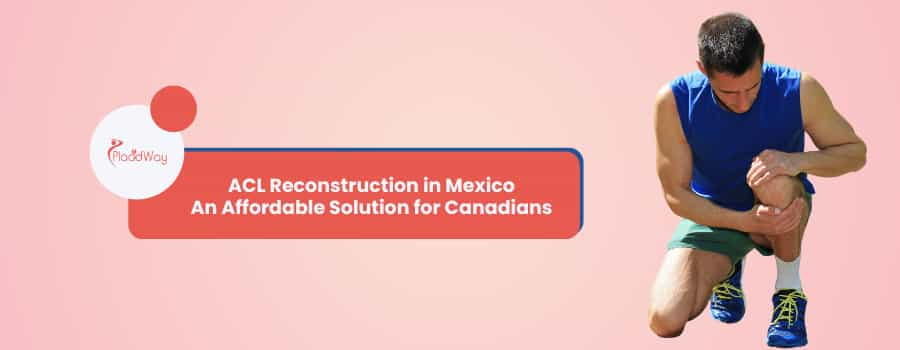
For Canadians seeking Anterior Cruciate Ligament (ACL) reconstruction, Mexico offers a compelling alternative to long wait times and high costs, providing world-class orthopedic care at a fraction of the price.
A torn ACL is a common and debilitating knee injury, especially prevalent among athletes and active individuals. While essential for regaining knee stability and function, ACL reconstruction surgery can be incredibly expensive and subject to lengthy waiting lists in countries like Canada. Mexico has emerged as a leading destination for medical tourism, offering highly skilled surgeons, modern facilities, and significantly more affordable prices for this crucial procedure. This comprehensive guide will explore why Mexico is an ideal choice for Canadians considering ACL reconstruction, covering everything from procedures and costs to recovery and essential preparation.
Key Takeaways
- Patients can save 40%-60% on ACL reconstruction costs by choosing Mexico compared to Canada and the USA.
- The average cost of ACL surgery in Mexico ranges from $8,000 to $17,000 USD, significantly lower than the $15,000 to $30,000 CAD in Canada and $20,000 to $50,000 USD in the US.
- All-inclusive packages often cover surgeon fees, hospital stay, anesthesia, post-operative care, and sometimes even accommodation and transportation.
- Autograft using the patellar tendon generally has the lowest retear risk, making it a preferred option for many.
Understanding ACL Tears and Reconstruction
An ACL tear is an injury to one of the four major ligaments in the knee, often requiring surgical intervention to restore stability and prevent further damage.
The anterior cruciate ligament (ACL) is a vital band of tissue connecting your thigh bone (femur) to your shin bone (tibia), crucial for knee stability and rotational control. An ACL tear typically occurs due to sudden stops, changes in direction, jumping, or direct impact, common in sports like soccer, basketball, and skiing. While some minor tears might be managed non-surgically, complete tears often require ACL reconstruction surgery to restore knee function and prevent long-term complications like osteoarthritis.
The surgery involves replacing the torn ligament with a new tissue graft. This graft can be an autograft (taken from your own body, such as hamstring, patellar tendon, or quadriceps tendon) or an allograft (taken from a cadaver). Your surgeon will discuss the best graft option for your specific case, considering factors like age, activity level, and overall health.
Did You Know? The ACL is one of the most commonly injured ligaments in the knee, with an estimated 200,000 ACL injuries occurring annually in the United States alone.
Why Choose Mexico for ACL Reconstruction?
Mexico offers a combination of affordability, high-quality medical care, and experienced orthopedic surgeons, making it an attractive destination for medical tourists, particularly Canadians.
Canadian patients often face long waiting lists for elective surgeries like ACL reconstruction, sometimes extending for months or even over a year. This delay can significantly impact a patient's quality of life, prolong pain, and potentially lead to further knee damage. Mexico provides a solution with readily available appointments and expedited treatment. Beyond shorter wait times, the significant cost savings are a major draw. Mexican hospitals and clinics maintain high standards, with many holding international accreditations like Joint Commission International (JCI), ensuring comparable quality to North American facilities.
Furthermore, many Mexican orthopedic surgeons receive training in the US, Canada, or Europe, possessing extensive experience with advanced surgical techniques and the latest medical technologies. The entire medical tourism experience in Mexico is often streamlined, with many clinics offering all-inclusive packages that simplify the process for international patients.
Expert Insight: "The growth of medical tourism to Mexico for orthopedic procedures like ACL reconstruction is a testament to the country's commitment to quality healthcare at accessible prices. Patients are increasingly realizing that they don't have to sacrifice quality for affordability." - Leading Orthopedic Surgeon specializing in Sports Medicine.
Types of ACL Reconstruction Procedures and Grafts
ACL reconstruction involves replacing the damaged ligament with a graft, primarily utilizing autografts (from the patient's own body) or allografts (from a deceased donor).
The choice of graft material is a crucial aspect of ACL reconstruction, influencing recovery time, potential complications, and long-term success.
Autografts
These grafts are harvested from the patient's own body, meaning there is no risk of disease transmission or immune rejection.
- Patellar Tendon Autograft (Bone-Patellar Tendon-Bone - BPTB): Considered the "gold standard" by many surgeons, it involves taking the middle third of the patellar tendon along with small bone blocks from the kneecap and shin bone.
- Pros: Strong graft, excellent fixation with bone-to-bone healing, generally lowest retear risk, particularly for younger, active individuals.
- Cons: Potential for anterior knee pain (pain at the front of the knee, especially when kneeling), increased risk of patellar fracture, and donor site morbidity.
- Hamstring Tendon Autograft: Involves taking one or two of the hamstring tendons from the inner thigh. These tendons are then folded to create a multi-strand graft.
- Pros: Less anterior knee pain, smaller incision, potentially faster initial recovery.
- Cons: Potential for hamstring weakness, higher retear rate compared to BPTB in some studies, especially in very young, highly active patients.
- Quadriceps Tendon Autograft: Involves taking a portion of the quadriceps tendon just above the kneecap.
- Pros: Strong graft, good for revision ACL surgery, less anterior knee pain than patellar tendon.
- Cons: Newer technique with less long-term data compared to BPTB and hamstring, potential for quadriceps weakness.
Allografts
These grafts are obtained from deceased donors and undergo rigorous screening and processing.
- Pros: Avoids donor site morbidity and pain, shorter surgery time, useful for revision surgeries or multi-ligament injuries.
- Cons: Higher retear rate, especially in younger patients (under 25), small risk of disease transmission (though extremely rare due to stringent processing), slower integration into the body.
The surgeon will typically discuss the pros and cons of each graft type based on your age, activity level, and specific injury.
ACL Reconstruction Cost in Mexico
The cost of ACL reconstruction in Mexico is significantly lower than in Canada and the United States, offering substantial savings without compromising on quality of care.
One of the primary motivations for Canadians seeking medical treatment abroad is the cost savings. ACL reconstruction in Mexico can be an incredibly affordable option, often including comprehensive packages.
| Procedure (USD) | Mexico (Average Range) | Canada (Average Range - CAD) | USA (Average Range - USD) |
| ACL Reconstruction (Autograft) | $8,000 - $15,000 | $15,000 - $25,000 | $20,000 - $40,000 |
| ACL Reconstruction (Allograft) | $9,000 - $17,000 | $18,000 - $30,000 | $25,000 - $50,000 |
Note: These prices are estimates and can vary based on the specific clinic, surgeon's fees, type of graft, complexity of the case, length of hospital stay, and inclusions in a package. Many medical tourism packages in Mexico are all-inclusive, covering:
- Surgeon's fees
- Anesthesiologist's fees
- Hospital and operating room costs
- Pre-operative consultations and diagnostic tests (e.g., MRI review, blood work)
- Post-operative care and follow-up appointments
- Medications during hospital stay
- Initial physical therapy sessions
- Accommodation and ground transportation (airport/hotel/clinic)
Did You Know? The significant cost difference in Mexico is primarily due to lower overhead costs, lower labor costs, and a less complex administrative and insurance bureaucracy compared to Canada and the USA.
Preparing for ACL Reconstruction
Proper preparation before ACL reconstruction surgery is crucial for optimizing surgical outcomes and facilitating a smoother recovery.
Once you've decided on Mexico for your ACL reconstruction, thorough preparation is key.
- Medical Evaluation: Share all your medical records, including MRI scans, X-rays, and previous medical history, with the Mexican orthopedic team. They will conduct a comprehensive review to confirm your candidacy and tailor the treatment plan.
- Pre-habilitation (Pre-hab): Your surgeon may recommend a period of pre-operative physical therapy to improve knee range of motion, reduce swelling, and strengthen surrounding muscles. This can significantly improve post-surgical recovery.
- Logistics:
- Passport and Visa: Ensure your passport is valid. Canadians typically do not require a visa for short tourist stays in Mexico.
- Travel Arrangements: Book flights and coordinate airport transfers with your chosen clinic or medical tourism facilitator.
- Accommodation: Many packages include accommodation, or you can arrange your own nearby.
- Companion: It's highly recommended to travel with a companion who can assist you during your recovery period.
- Medications: Discuss all current medications, supplements, and allergies with your surgeon. You may need to stop certain medications (e.g., blood thinners) before surgery.
- Home Preparation: Prepare your home for your return, ensuring easy access to essentials, removing tripping hazards, and arranging for assistance with daily tasks during initial recovery.
- Financial Planning: Confirm all costs and payment arrangements. While more affordable, it's essential to have a clear understanding of the financial commitment.
Recovery and Aftercare
A structured rehabilitation program is paramount for a successful recovery after ACL reconstruction, aiming to restore strength, stability, and full range of motion.
The recovery process after ACL reconstruction is gradual and requires dedication to a prescribed physical therapy program.
- Immediately After Surgery: You will experience pain and swelling. Pain medication will be prescribed, and ice and elevation will be crucial to manage swelling. You'll likely use crutches and a knee brace for support.
- Hospital Stay: Typically 1-3 days, depending on the complexity of the surgery and the clinic's protocol.
- Initial Rehabilitation (Weeks 1-6): Focus is on reducing swelling, restoring full knee extension, and regaining basic range of motion. Gentle exercises will be introduced. Weight-bearing will gradually increase as tolerated.
- Intermediate Rehabilitation (Months 2-4): Focus shifts to strengthening the quadriceps and hamstring muscles, improving balance, and gradually increasing activity levels. Low-impact activities like stationary cycling or swimming may begin.
- Advanced Rehabilitation (Months 5-9+): Sport-specific drills and plyometric exercises are introduced, preparing the knee for higher-impact activities and eventual return to sport.
- Return to Activity/Sport: Full return to high-impact sports can take 6-12 months or even longer, depending on individual progress, the graft type, and the sport's demands. It is crucial to follow your physical therapist's and surgeon's guidance to prevent re-injury.
- Scar Care: Once the incision is healed, gentle massage and topical treatments (e.g., silicone sheets) can help improve scar appearance.
- Follow-up: Many Orthopedic clinics in Mexico offer virtual follow-up consultations once you return home. Close communication with your Canadian family doctor and physical therapist is essential for continued care.
Risks and Complications
While ACL reconstruction has a high success rate, as with any surgical procedure, there are potential risks and complications.
It's important to be aware of the potential risks, though they are generally low:
- Infection: Though rare (approximately 1 in 200 cases), infection can occur at the surgical site.
- Stiffness (Arthrofibrosis): Excess scar tissue can form, limiting knee motion. This is why early and consistent physical therapy is crucial.
- Persistent Pain: Some patients may experience ongoing pain, particularly anterior knee pain with patellar tendon grafts.
- Graft Failure/Re-tear: The new ACL graft can stretch, loosen, or tear again, requiring revision surgery. The re-tear rate is higher in younger, very active individuals.
- Numbness: Small nerves under the skin near the incision site can be damaged, leading to patches of numbness.
- Blood Clots (DVT): Formation of blood clots in the leg, which in rare cases can travel to the lungs (pulmonary embolism).
- Anesthesia Complications: Risks associated with general anesthesia, though modern anesthesia is very safe.
Reputable clinics in Mexico adhere to strict safety protocols and have experienced medical teams to minimize these risks.
FAQs about ACL Reconstruction in Mexico
How long do I need to stay in Mexico for ACL reconstruction?
A typical stay for ACL reconstruction in Mexico, including pre-operative assessments, surgery, and initial recovery, ranges from 5 to 10 days. This allows for immediate post-operative care and initial physical therapy sessions before traveling back home.
Will my Canadian health insurance cover ACL surgery in Mexico?
Generally, provincial health plans in Canada do not cover elective surgeries performed outside of Canada. However, it is essential to check with your specific provincial health authority and any private travel or medical tourism insurance you may have, as some policies might offer partial coverage for complications or specific treatments abroad.
Are the surgeons in Mexico qualified?
Yes, many orthopedic surgeons in Mexico are highly qualified, board-certified, and often have international training from institutions in the US, Canada, or Europe. It's recommended to choose clinics and surgeons with verified credentials and positive patient reviews.
What if there are complications after I return to Canada?
Reputable clinics in Mexico will provide post-operative instructions and may offer virtual follow-up consultations. For any complications upon returning to Canada, you would typically seek care from your local family doctor or an orthopedic specialist.
Is Mexico safe for medical tourists?
When choosing reputable, JCI-accredited hospitals and clinics in established medical tourism cities like Tijuana, Cancun, or Guadalajara, Mexico is generally safe for medical tourists. It's important to research and choose a trusted provider and follow common travel safety guidelines.
Can I combine my ACL recovery with a vacation in Mexico?
While Mexico is a beautiful destination, the primary focus after ACL reconstruction should be on rest and adherence to your rehabilitation program. Light sightseeing might be possible during the later stages of your recovery in Mexico, but strenuous activities or extensive travel should be avoided.
How successful is ACL reconstruction surgery?
ACL reconstruction surgeries have an 80% to 90% success rate, allowing most patients to return to their pre-injury activity levels, including sports. The success largely depends on the patient's adherence to the rehabilitation program.
Your Journey to Recovery Starts with PlacidWay
PlacidWay is a leading medical tourism platform dedicated to connecting patients with world-class healthcare providers globally. For Canadians seeking affordable ACL reconstruction without compromising quality, PlacidWay offers a seamless and trustworthy solution.
We partner with top-tier orthopedic clinics and JCI-accredited hospitals in Mexico that specialize in advanced ACL reconstruction techniques. Our comprehensive services include:
- Personalized Consultations: Connect with experienced medical advisors to discuss your needs and receive tailored treatment plans.
- Transparent Pricing: Get detailed cost breakdowns with no hidden fees, often including all-inclusive packages.
- Clinic and Surgeon Vetting: Access a curated network of highly qualified and reputable surgeons and facilities.
- Post-operative Care Coordination: Guidance on follow-up care and rehabilitation planning.
Don't let long wait times or high costs delay your recovery. Explore your options for ACL reconstruction in Mexico with PlacidWay and take the first step towards regaining your knee health and active lifestyle.
Request a FREE consultation or a personalized quote today!


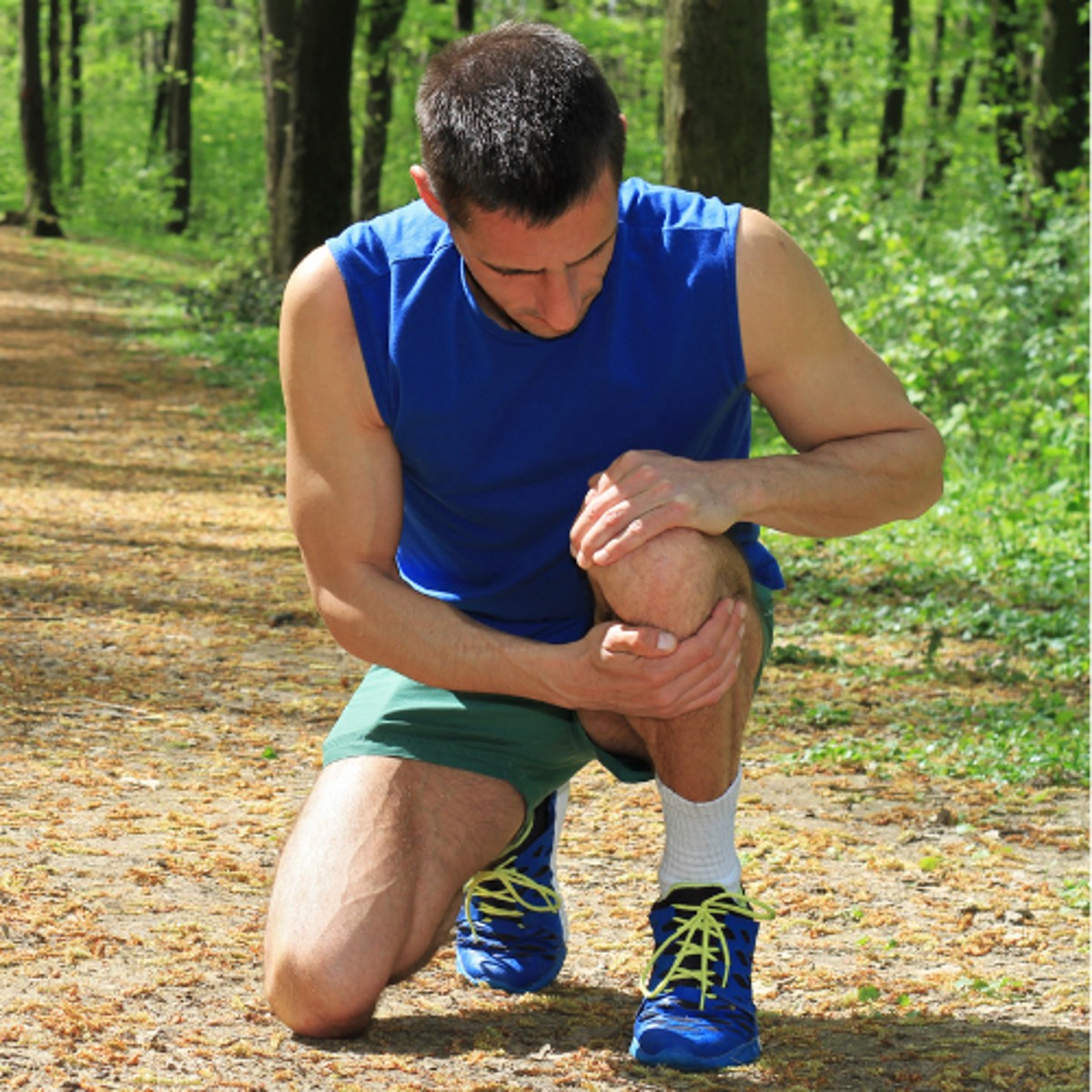
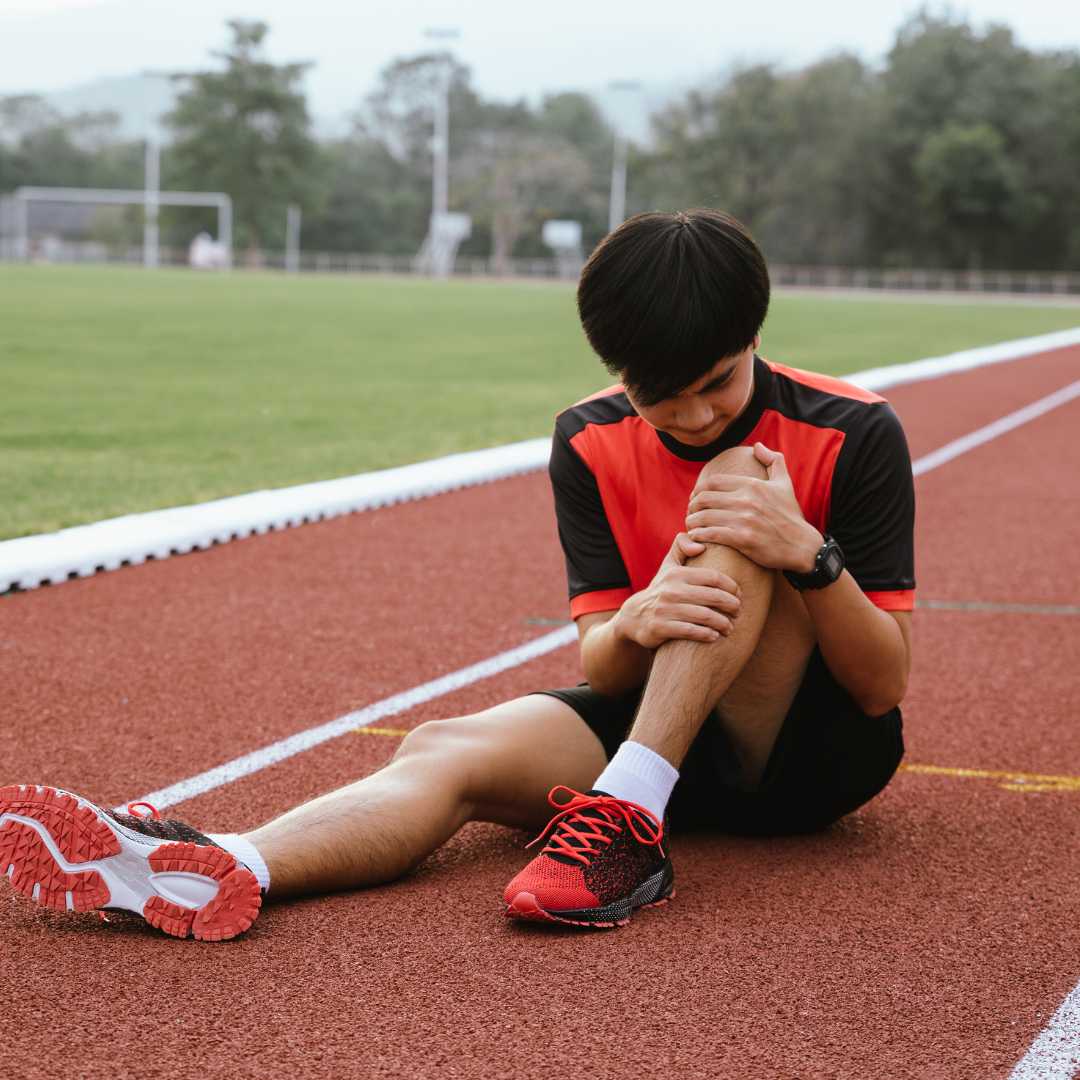

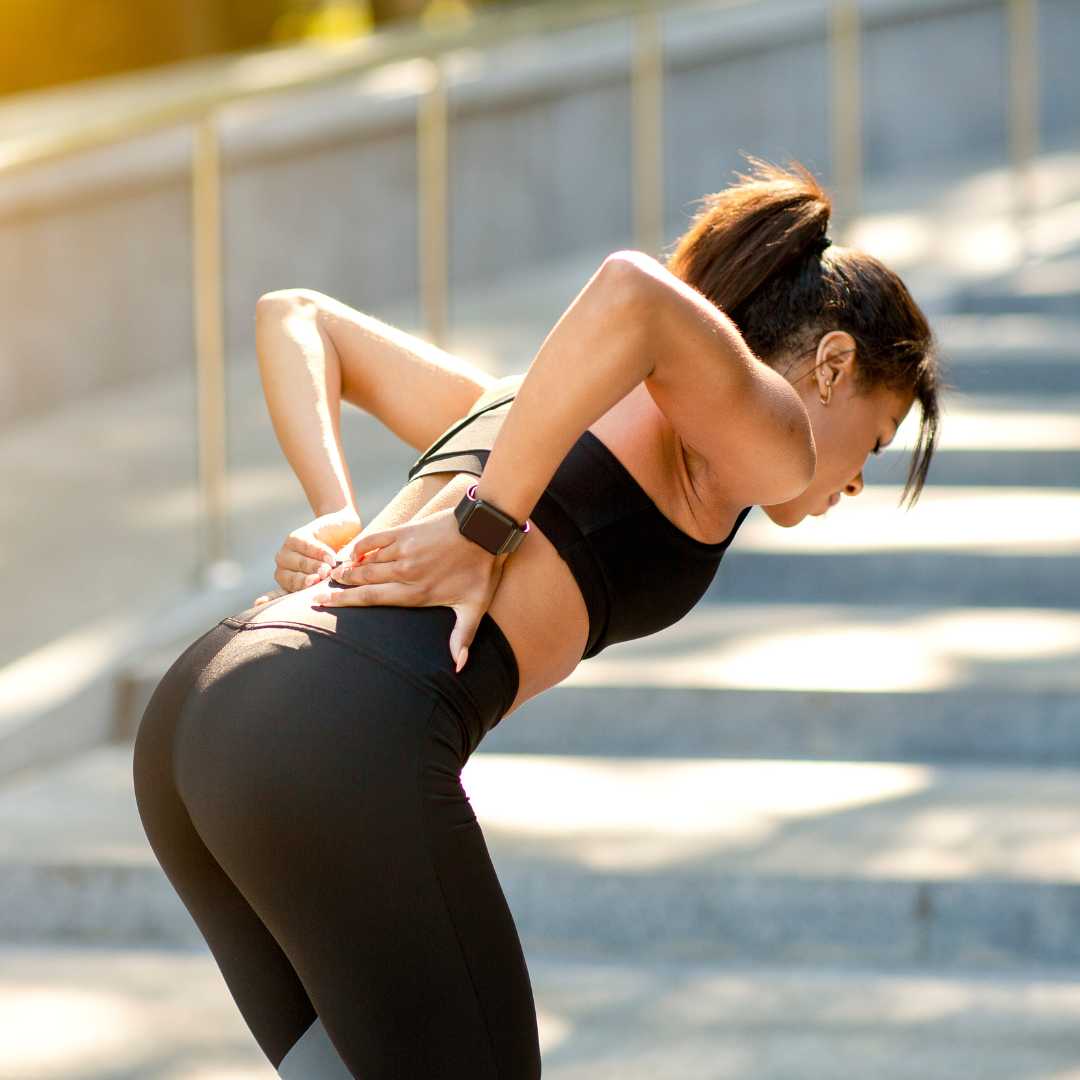
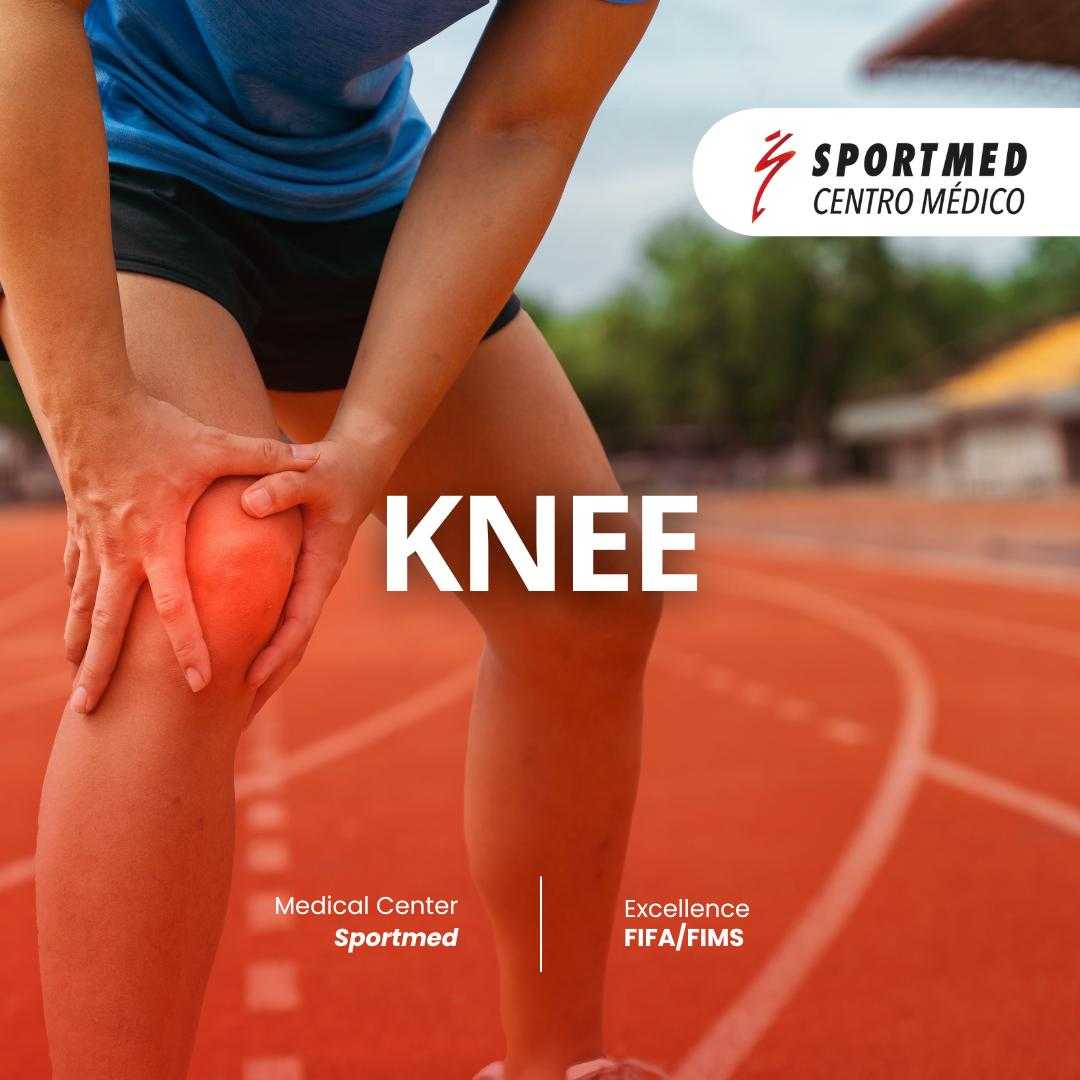
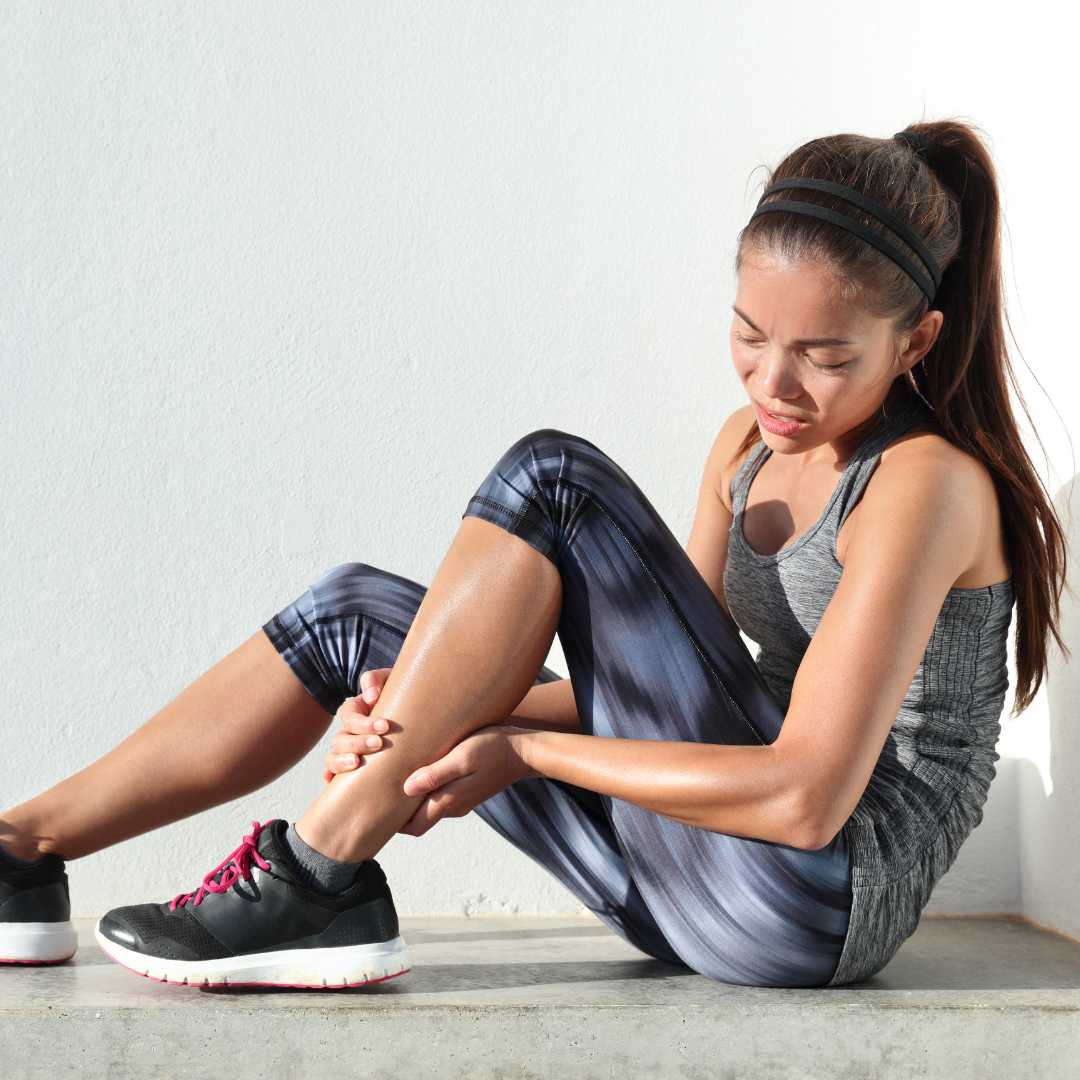



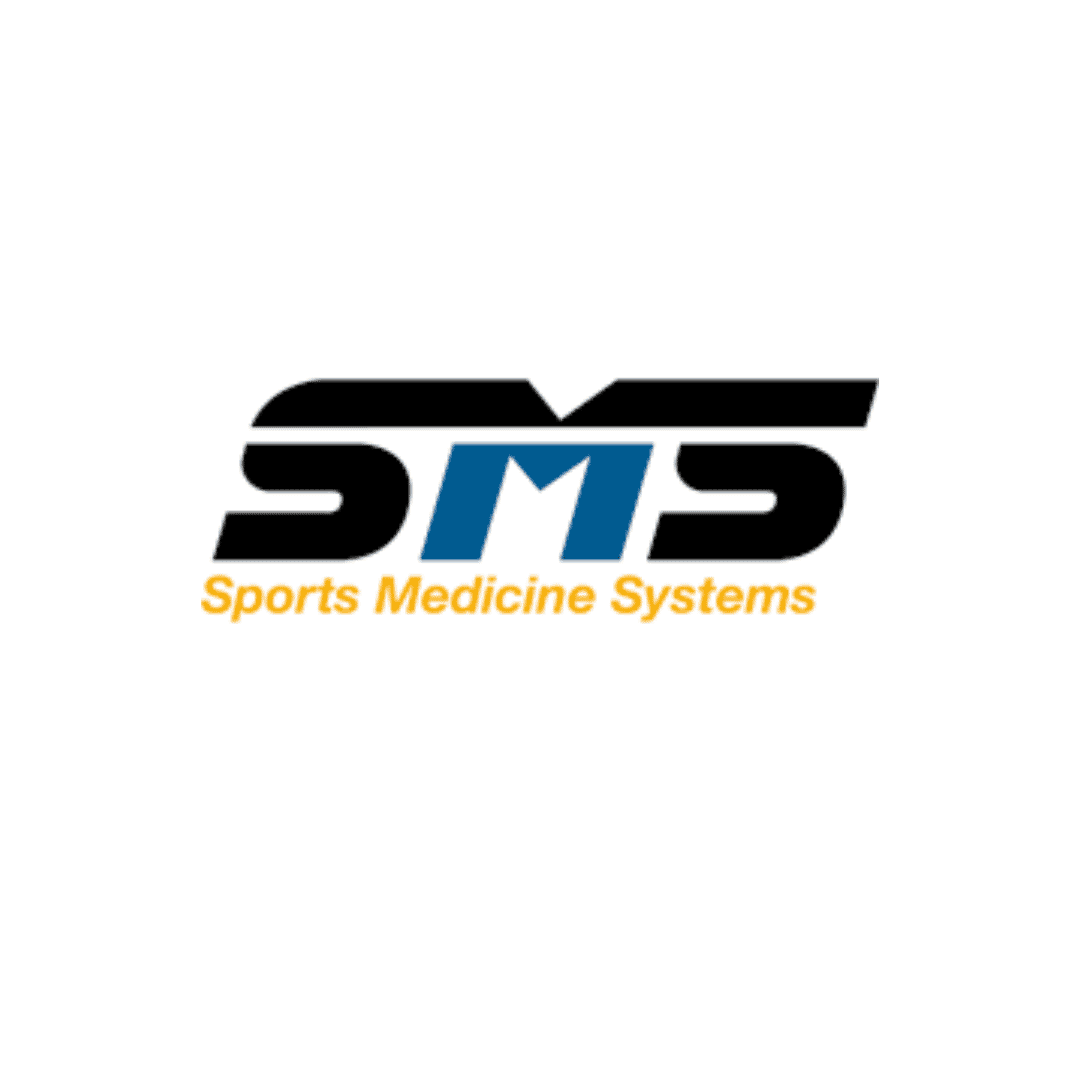
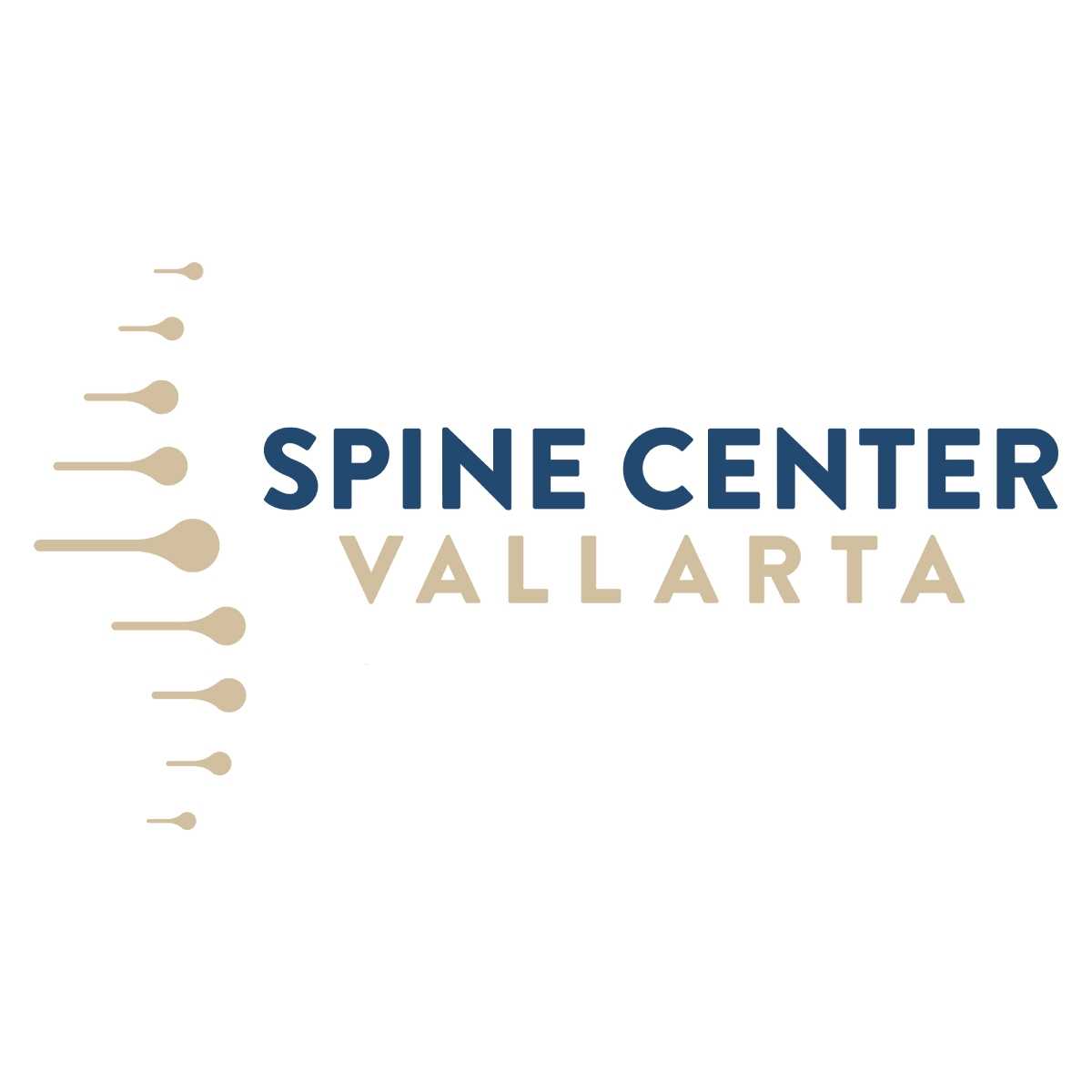
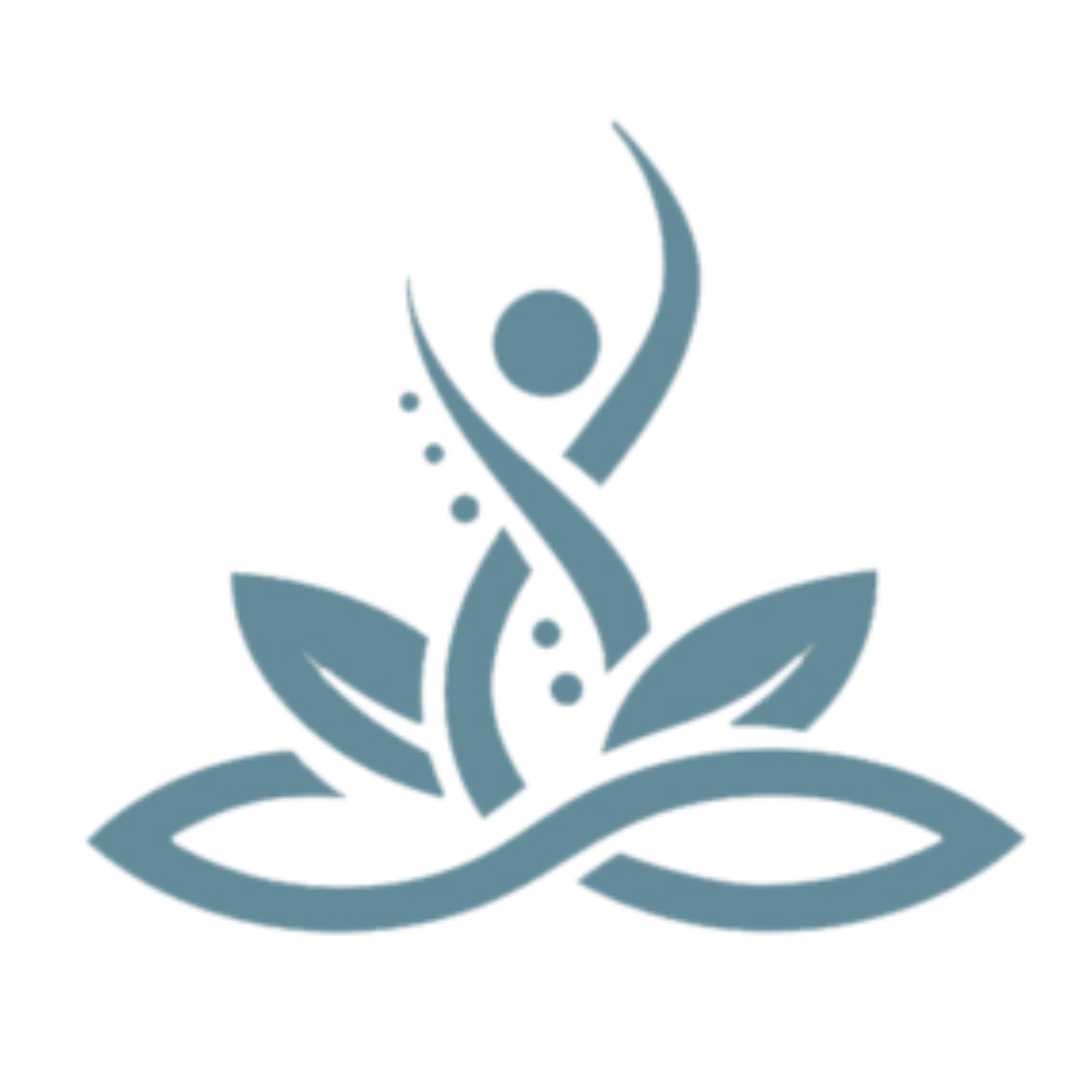
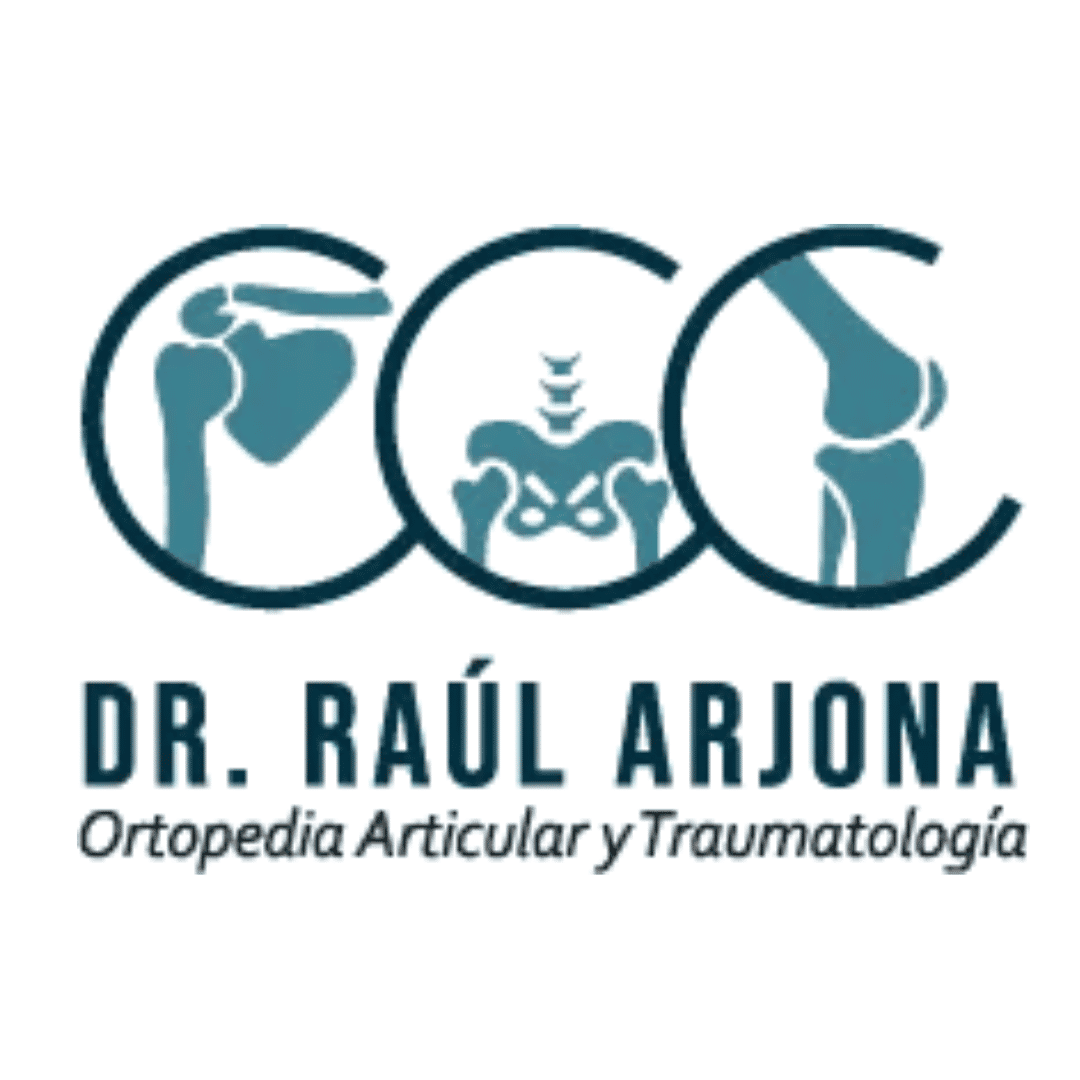


Share this listing